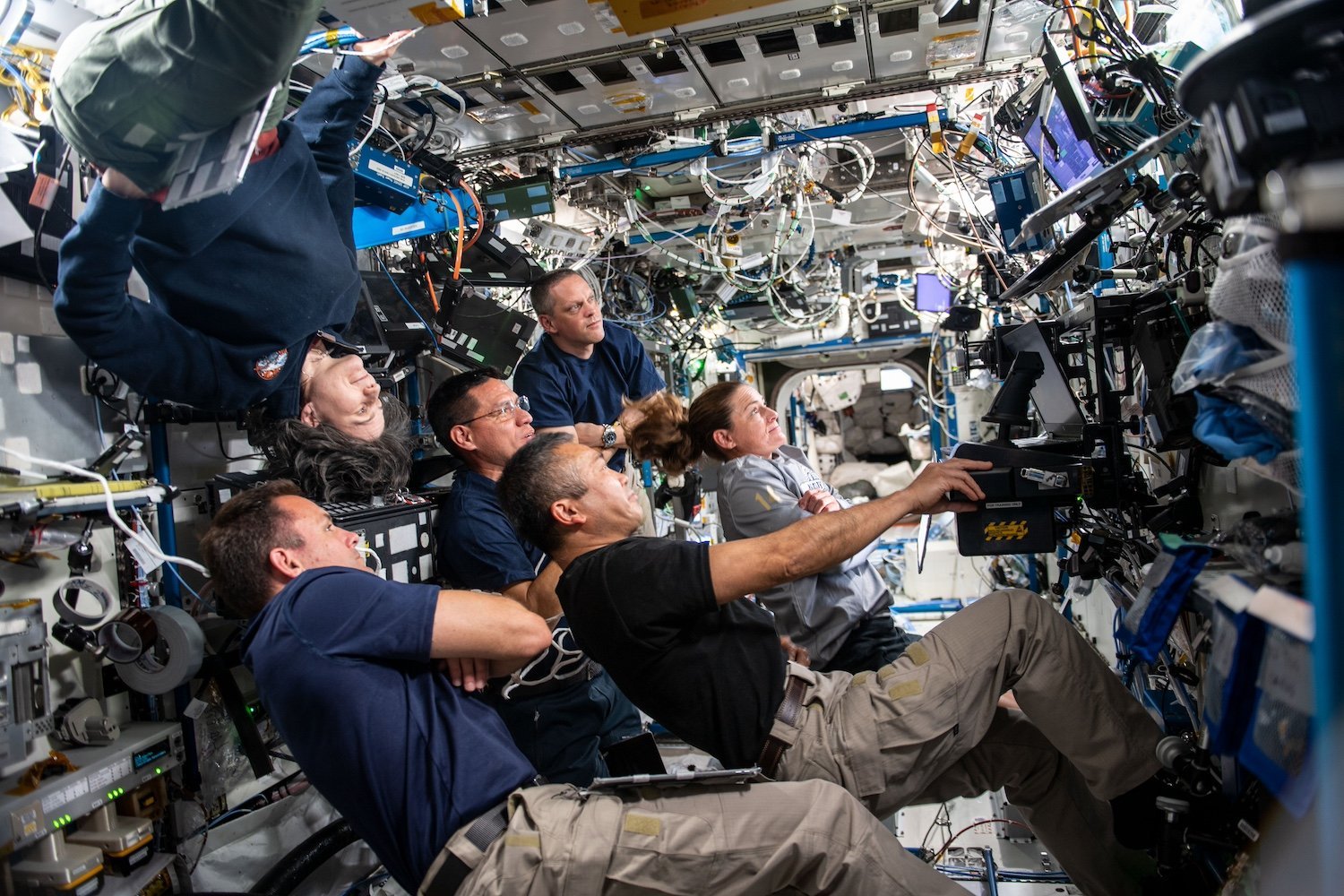A new study is shedding light on the lesser known effects of space on cognitive behavior and how astronauts’ slower performance could impact our ability to embark on long duration journeys through the cosmos.
A team of researchers from NASA’s Behavioral Health and Performance Laboratory examined the behavior of 25 astronauts on board the International Space Station (ISS), finding that the astronauts took longer to complete certain tasks that have to do with processing speed, working memory, and attention during their stay in space. The findings, detailed in a study published in Frontiers in Physiology, raise concerns over the impact future missions to the Moon and Mars could have on the brains of astronauts.
For the study, the astronauts were given 10 tests to complete on Earth, once ahead of their launch to space and twice after their return back home (10 days and then 30 days after landing on Earth). The astronauts also had to complete the same tests on board the space station, both early on and towards the end of the six-month duration of their missions. For each of the tests, the researchers measured speed and accuracy, comparing the performance of the astronauts at those five points in time.
The results showed that astronauts responded to tasks assessing processing speed, working memory, and attention slower in space than they did on Earth, but they maintained the same level of accuracy. Additionally, the changes in the astronauts’ cognitive behavior did not persist after their return to Earth. “Living and working in space was not associated with widespread cognitive impairment that would be suggestive of significant brain damage,” Sheena Dev, a researcher at NASA’s Behavioral Health and Performance Laboratory and lead author of the new study, said in a statement.
That’s good news for the astronauts following their return to Earth, but it does have implications for their time in space. Space has extreme stressors that the human body doesn’t experience on Earth, such as radiation, microgravity, as well as the demands of the mission itself, all of which can affect the way our brains function.
“Even on Earth, processing speed, working memory, and attention are cognitive domains that can show temporary changes when an individual is under stress. Other domains, such as memory, are less vulnerable to stressors,” Dev said. “For example, if you happen to have a really busy day but couldn’t get much sleep the night before, you might feel like it’s hard to pay attention or that you need more time to complete tasks.”
Space can take a serious toll on the human body. Previous research has shown that long duration spaceflight can result in the loss of bone density and the onset of muscle atrophy, in addition to detrimental effects on the heart, eyes, spine, cells, and overall physical fitness.
When it comes to the brain, less research has been done on astronauts’ cognitive behavior but there is some indication that space can affect the human brain as well. A study published in 2020 showed that long-duration spaceflight may fundamentally alter the amount of cerebrospinal fluid in the brain, with the increased volume of fluid remaining for a full year after astronauts returned from space. Research from 2017 also showed that extended stints in space caused gray matter to both increase and decrease in different regions of the brain.
As NASA prepares to return astronauts to the Moon as part of its Artemis program, the plan is to establish a sustainable human presence on the lunar surface, and to travel to Mars from there. Although more research needs to be done on the effects of spaceflight on the human body, things are not looking good so far, and space agencies need to come up with ways to mitigate the harmful downside space travel can have on their astronauts.















Leave a Reply